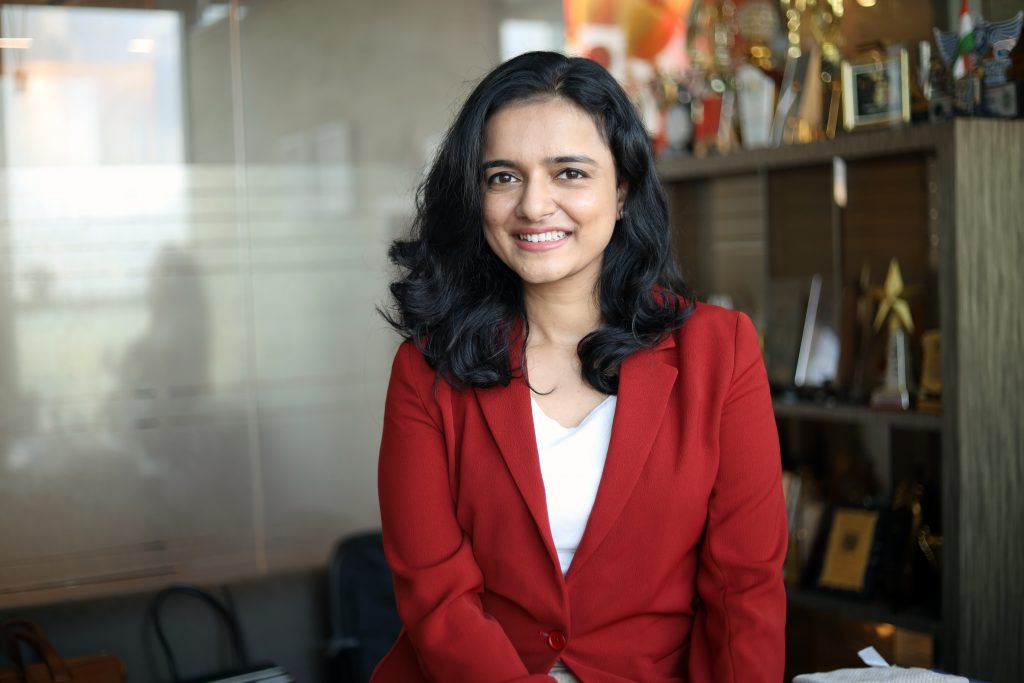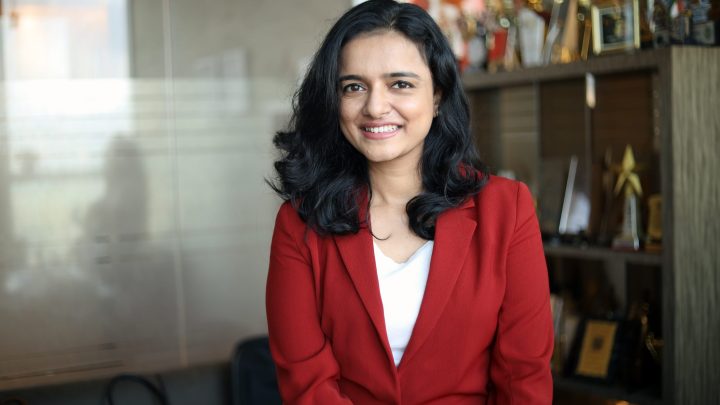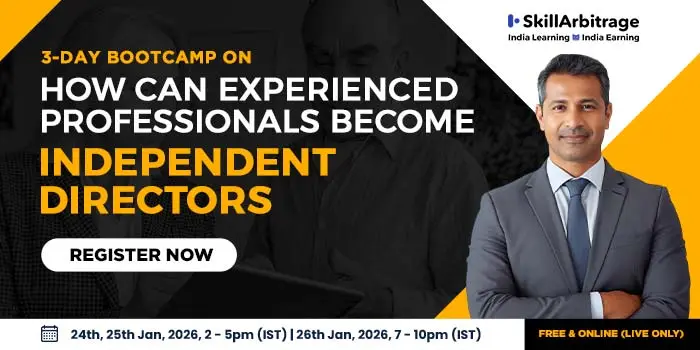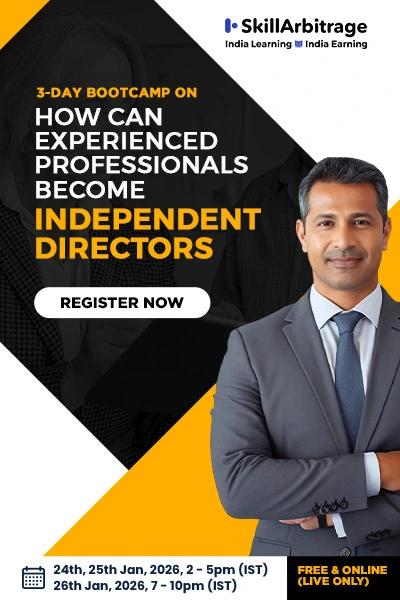Interviews
9441
0
0
“That habit of consciously engaging with the law, not just reacting to it, helps me filter noise from relevance.” – Arrpita K Bhatt, Media and Entertainment Lawyer.
This interview was taken by SuperLawyer Team
Posted on June 06, 2025
This interview has been published by Anshi Mudgal and The SuperLawyer Team

Coming from a commerce background, what inspired you to pursue a career in law? In what ways has your academic foundation in commerce complemented your legal journey, particularly in corporate or commercial legal matters?
While I began my journey in commerce, my deeper purpose was always rooted in empowerment, especially through education. I saw law as a transformative tool, not just to resolve disputes but to elevate people’s understanding of their own rights. That vision pushed me to transition into the legal field.
During my B.Com, I worked as an Internal Stock Auditor and Stock Researcher. That experience grounded me in the practical workings of the corporate world from compliance intricacies to financial accountability. It didn’t just teach me numbers; it taught me how businesses breathe. So when I entered law, especially corporate and commercial law, I wasn’t looking at statutes in isolation, I understood the business realities behind them. This dual perspective has helped me serve clients with both strategic insight and legal precision.
At every step, law has enabled me to blend purpose with profession using my legal acumen to educate, empower, and break barriers, whether it’s through my professional practice or through initiatives like BLU.
How was your experience pursuing an LL.M. in Intellectual Property Rights and Information Technology? What drew you to this specialization over others, and how has it shaped your perspective on law and innovation?
Growing up as a millennial, I witnessed the Internet evolve from dial-up modems to streaming platforms, memes, and digital marketplaces. That transformation fascinated me. I was always curious about how technology shaped communication, expression, and even identity. At the same time, I was a budding writer, scribbling short stories, blogging, and researching how books get published. That’s when I stumbled upon the concept of Intellectual Property. It felt like unlocking a new superpower, realizing that ideas, like inventions or writings, had legal lives of their own.
Back when I was in law school, IP wasn’t yet the buzzword it is today. But I could see its future relevance, how creativity and innovation would increasingly become the currency of our generation. That foresight, combined with my natural curiosity for tech and content, made IPR and IT Law a very intuitive choice for my LL.M.
Pursuing this specialization gave me a profound appreciation of the balance between innovation and regulation. It shaped my ability to not only advise creators and tech companies but also advocate for ethical, accessible, and inclusive innovation. Today, whether I’m working on a deal, mentoring students through BLU, or speaking on digital rights, my perspective is shaped by that early blend of passion, foresight, and learning.
In the early phase of your career, you were drawn to academics. What were some of the key experiences during that time that deepened your understanding of law and the subjects you taught? What eventually motivated your transition from academia to law firm practice?
I’ve always had the heart of an academician. Even while pursuing my Master’s, I found myself teaching, mentoring, and constantly questioning the “why” behind every legal principle. That dual role as both a student and a lecturer, helped me look at law from both sides of the lens: as a learner and a guide.
Among all the subjects I engaged with, Contract Law left a lasting imprint. It’s one of those timeless areas of law, centuries old yet constantly evolving. No matter how advanced technology becomes or how industries pivot, contracts remain the language through which businesses and individuals build trust. Teaching contracts made me realize how theory and practice often diverge, and that’s when the spark was lit, I wanted to experience how these doctrines come alive in boardrooms, negotiations, and deal-making.
That desire to move beyond the black-letter law and engage with the real-world intricacies of business is what eventually drew me to law firm practice. I wanted to see how contracts function under pressure, in dynamic sectors, across jurisdictions and how I, as a lawyer, could bring both legal integrity and commercial sensibility to the table.
Even today, that academic lens hasn’t left me. Whether through social work or mentorship, I continue to teach but now with the added richness of my experience and applied insight.
Transitioning to an in-house counsel role marks a significant shift in a legal career. You’ve worked with some of the biggest names in the media and entertainment sector. How have these roles differed from one another, and could you share one of the most challenging cases you encountered along the way?
Having worked both at a law firm and as in-house counsel, I’ve come to realize that the shift isn’t so much about a change in career, it’s a shift in perspective. In a firm, you operate as a specialist often brought in to solve a specific legal problem. But as an in-house counsel, you’re a strategic partner. The role demands that you understand the pulse of the business, anticipate risks before they arise, and offer solutions that don’t just check the legal box, but help the business move forward with confidence.
What’s unique about the media and entertainment sector is that it may appear as one unified industry, but it’s actually a convergence of many touchpoints, IP, contracts, advertising laws, digital platforms, privacy, broadcasting compliance, and more. Each company I’ve worked with has had its own rhythm, some with a strong content-first approach, others more tech-driven or distribution-led. Understanding the nuance of each business model has been essential, because legal advice isn’t one-size-fits-all; it needs to be context-aware and commercially sound.
As an in-house lawyer, I see my role as that of an enabler, ensuring the legal function supports innovation, protects creative vision, and helps the business build sustainable value while staying compliant. That blend of law and business strategy is what makes this role both challenging and deeply fulfilling.
As in-house counsel, how do you navigate the ever-evolving legal landscape especially with regard to content licensing, intellectual property, and digital media regulation in a fast-paced, highly regulated industry?
Law, by its very nature, is in a constant state of evolution. Even as we speak, it’s shifting, adapting to new technologies, redefining old principles, and responding to societal and business needs. As a legal professional, evolving alongside it isn’t optional, it’s essential.
In an industry like media and digital content, where disruption is the norm, my approach has been to be informed. I don’t believe in simply forwarding the latest update or echoing headlines. For me, it’s about pausing, reading deeply and asking, what does this mean for our business?
That habit of consciously engaging with the law, not just reacting to it, helps me filter noise from relevance. It ensures that when I advise on licensing structures, IP risks, or platform regulations, the counsel is not only current but also considered. The joy is in doing the work, not just knowing the jargon.
Ultimately, being an in-house counsel is about bridging change with clarity, guiding your team through uncertainty, while staying rooted in both principle and practicality.
Your expertise spans IPR, media, and technology laws, with a focused interest in data privacy. In your view, what steps can India take to strengthen its data protection regime and bring it closer in alignment with global frameworks such as the GDPR?
India’s journey toward a comprehensive data protection framework is both necessary and timely. As the world’s largest democracy with a rapidly digitizing population, our approach must be inclusive, scalable, and rooted in our constitutional values.
Frameworks like the GDPR have certainly set global benchmarks, and there is much we can be inspired by, particularly in areas like user consent, accountability, and transparency. But our legal and societal landscape is distinct, and that calls for a framework that is uniquely Indian in its design and delivery.
One key difference lies in the scope of government exemptions. Our law, in its current form, allows certain leeway for the State in matters of data processing. While this reflects the need for governance flexibility, it also places a greater onus on transparent implementation and robust oversight. As citizens, we must remain aware of our rights and engage in the legal process, so the law can evolve to reflect the democratic ideals it’s built upon.
Ultimately, the goal isn’t to replicate GDPR, it’s to build a framework that works for India, encourages digital trust, and empowers every citizen in this data-driven age. And I believe we are well on our way to achieving that.
As an author and a mentor deeply engaged with the next generation of legal minds, what gaps do you observe in contemporary legal education? How does your initiative, Basic Law Understanding(BLU), aim to bridge the gap between academic theory and practical legal application?
We often say that the next generation is tech-driven and that’s a wonderful strength. But in a world shaped by AI and automation, we need to ensure that not just GenAI is well-trained, but also that Gen Next of professionals are trained to think independently, apply critical reasoning beyond just algorithms.
BLU is not just a knowledge exchange, it’s a purpose-driven initiative to empower. It is designed for the masses to bridge the gap not only between classroom and courtroom, but between citizens and their rights. Whether it’s a student understanding broadcasting rights or a citizen decoding consumer rights. The aim is to be ‘Aware’.
Having actively contributed to grassroots activism, corporate legal affairs, academic publishing, and mentoring while also leading social initiatives, how do you maintain a balance between your professional responsibilities and personal well-being?
For me, the idea isn’t to chase balance, it’s to create blend. I don’t see my life as separate compartments of “work,” “passion,” and “personal time.” Instead, I try to design my day and my purpose in a way that all these facets flow into one another. But at the core of it all is one intention: to use law as a tool to empower.
This blend helps me stay connected to what I do and why I do it. I’ve learned that personal well-being doesn’t come from disconnecting from work, it comes from doing work that is aligned with your values, surrounded by people who believe in impact over optics.
Of course, I have my “DND” moments too where I switch off, read something that has nothing to do with the law, or spend time with the people who keep me grounded. But I don’t put pressure on myself to perform a balance like a checklist. Instead, I remind myself: if what you do fuels you, then you’re already living in alignment.
Whether it’s Gen Z finding their calling or seasoned professionals reinventing their role, I believe the future of law lies where empathy, and empowerment coexist naturally.
What advice would you give to aspiring lawyers at the beginning of their careers? Are there any key habits, mindsets, or resources that you found particularly helpful in shaping your own path in law?
My biggest advice? It’s that idiom
“Jack of all trades, master of none, but better than being stuck mastering just one.”
Law is a vast and layered field, and the more you expose yourself to its different shades, be it contracts, litigation, dispute resolution the clearer your own voice and direction will become.
In the early years, don’t rush to define your niche. Explore, assist, volunteer, write, question. “The legal profession isn’t a linear path, it’s more like a mosaic. Each experience, even the smallest one, adds depth to your understanding.” It’s okay to not have all the answers at the start curiosity will take you further than certainty ever can.
What helped me most was following what intrigued me.
And finally, stay rooted in empathy and purpose. Read beyond the law, fuel your hobbies. Listen to voices outside your echo chamber. Do something that connects you to yourself the most.
Your journey is your own, so don’t fear the unconventional. Walk it with awareness, and you’ll find not just success, but meaning.
*All views and responses mentioned here are personal.*
Get in touch with Arrpita K Bhatt –







No comments yet
Be the first to share your thoughts about this interview.